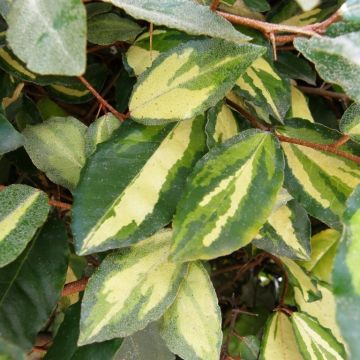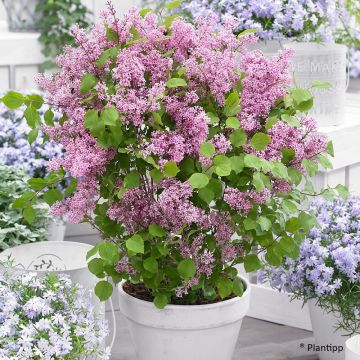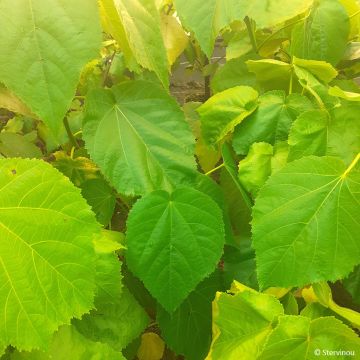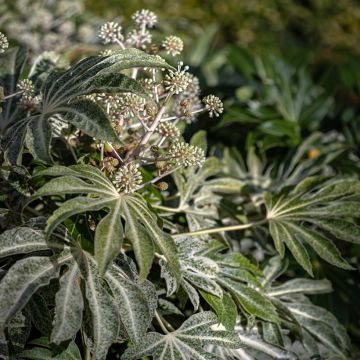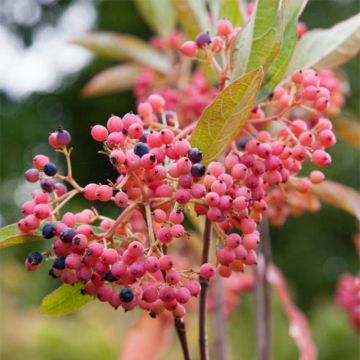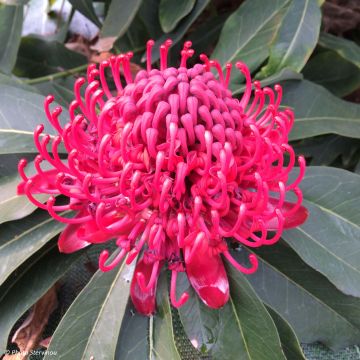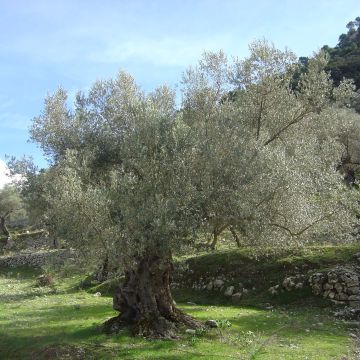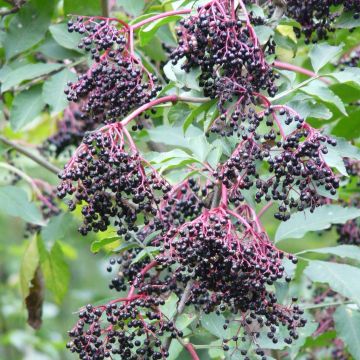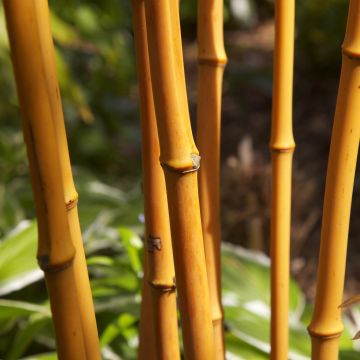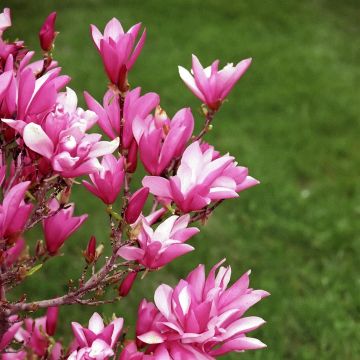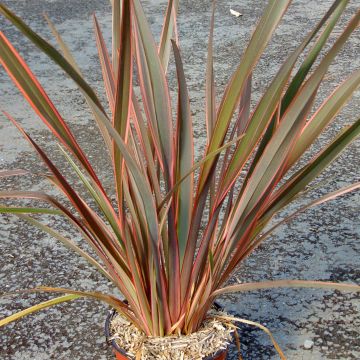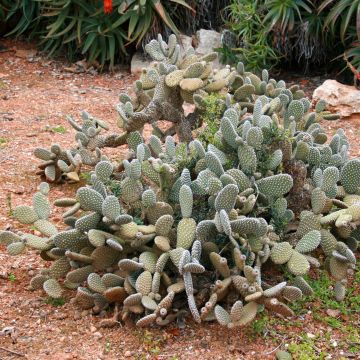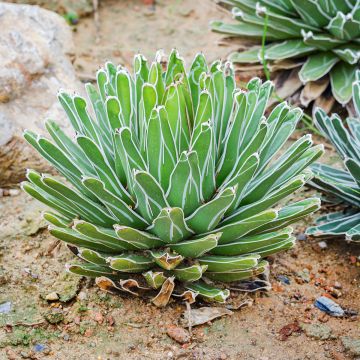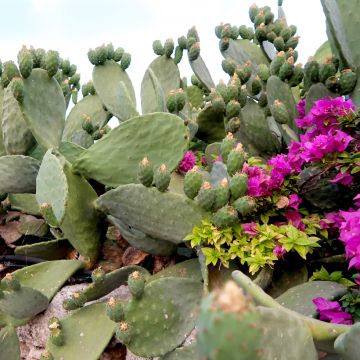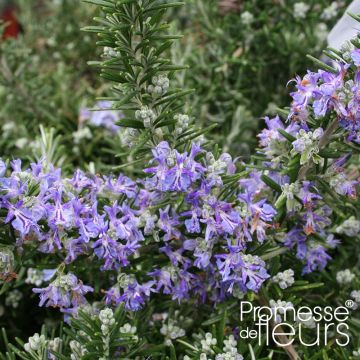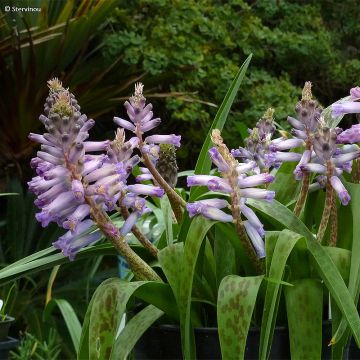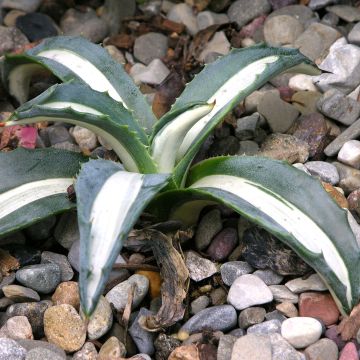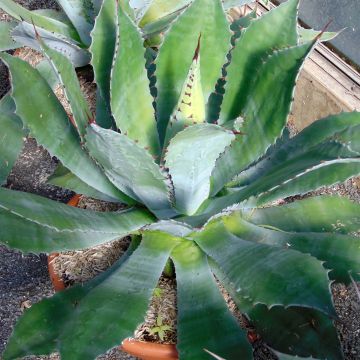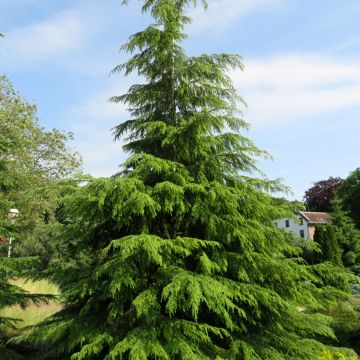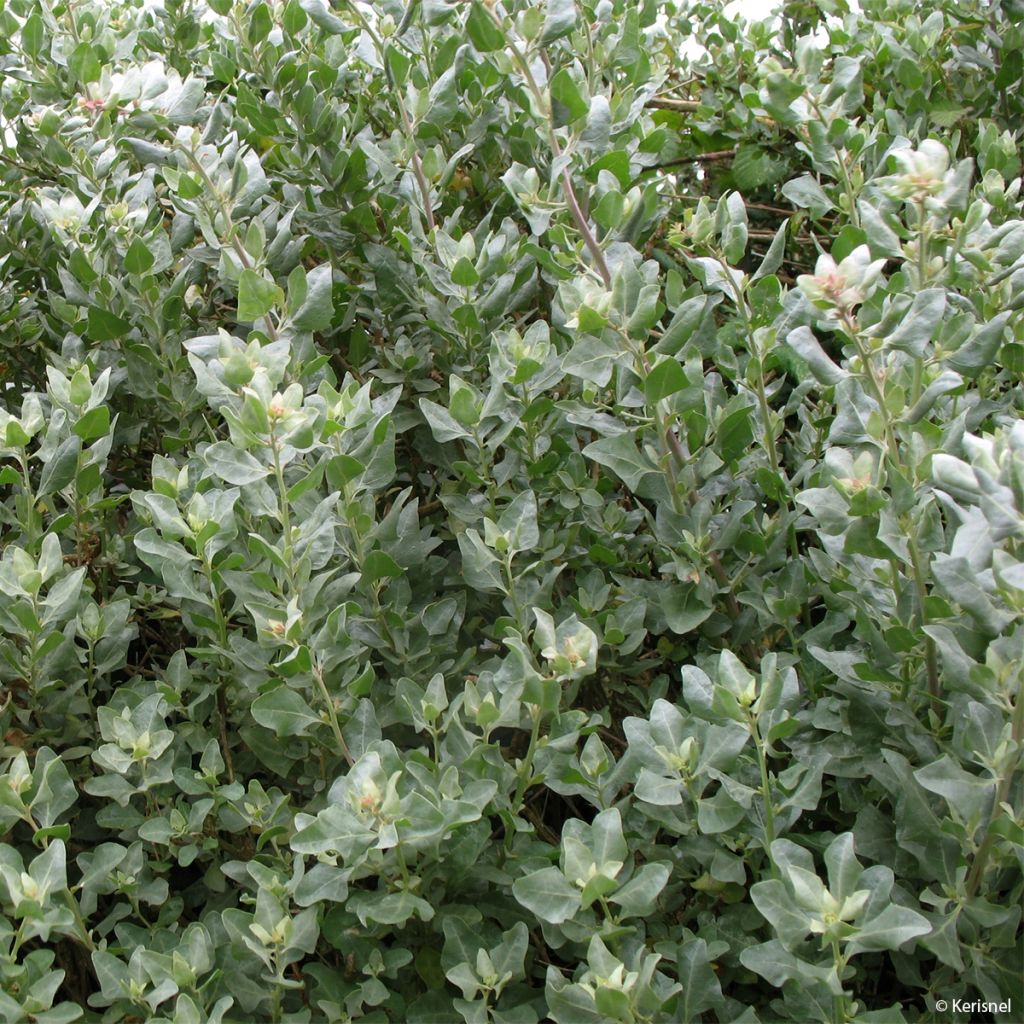

Atriplex halimus
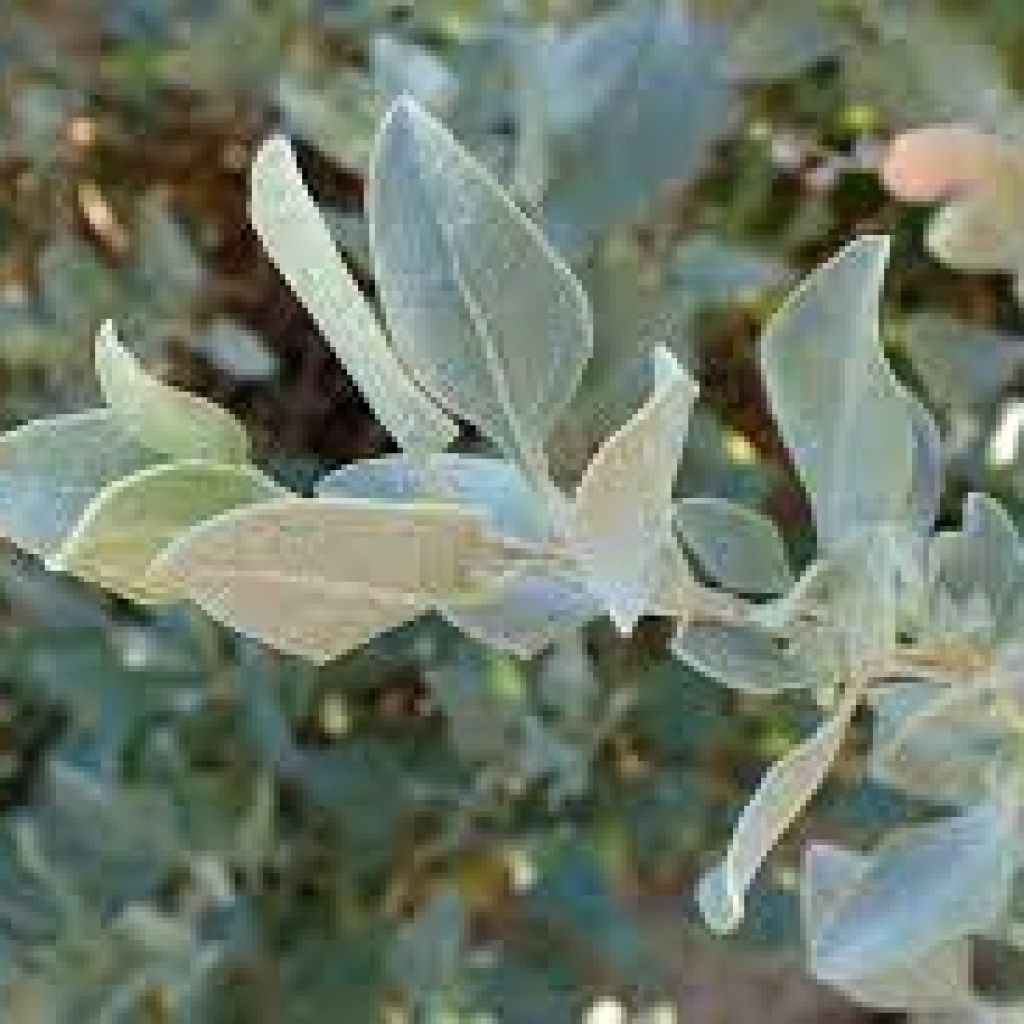

Atriplex halimus
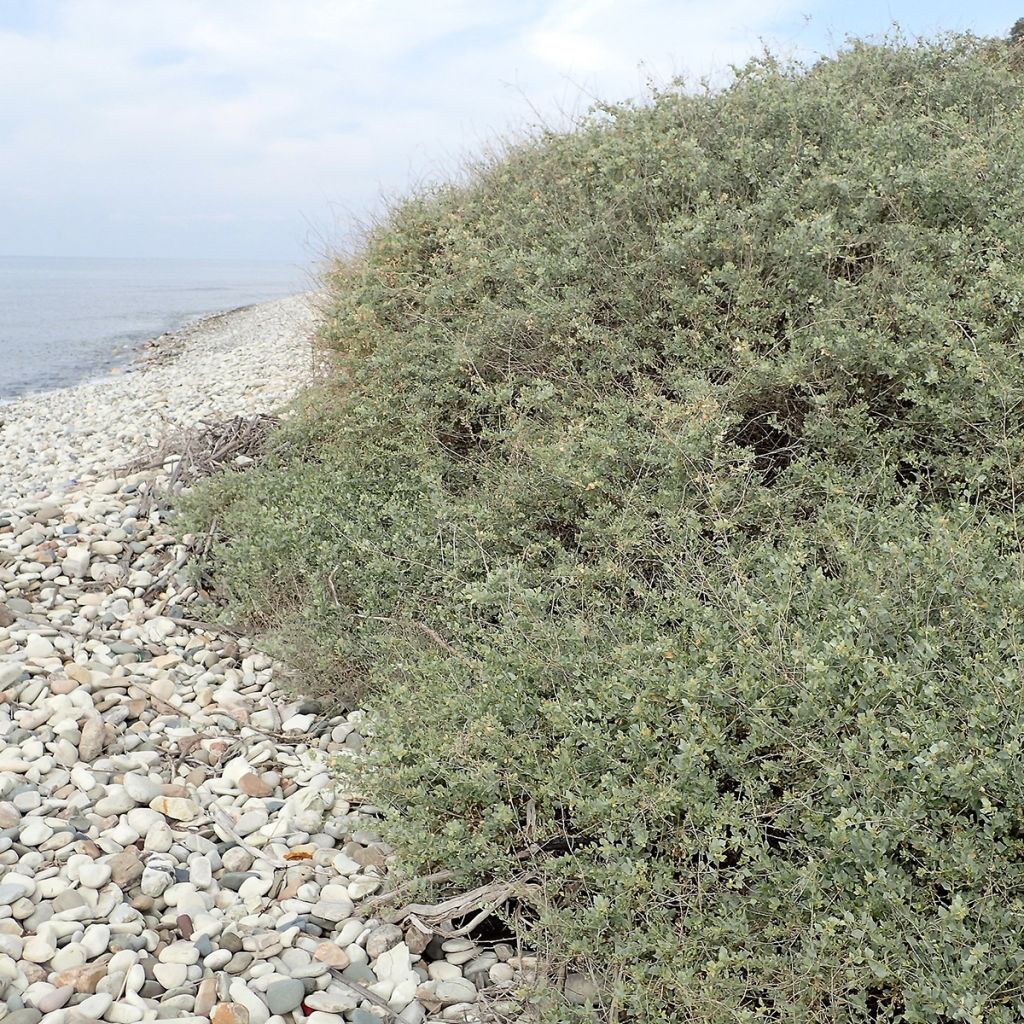

Atriplex halimus
Atriplex halimus
Atriplex halimus
Mediterranean saltbush, Sea orache, Shrubby orache, Silvery orache
This item cannot be shipped to the selected country
Delivery charge from €5.90
More information
Delivery charge from €5.90
More information
Schedule delivery date,
and select date in basket
This plant carries a 24 months recovery warranty
More information
We guarantee the quality of our plants for a full growing cycle, and will replace at our expense any plant that fails to recover under normal climatic and planting conditions.
From €5.90 for pickup delivery and €6.90 for home delivery
Express home delivery from €8.90.
Does this plant fit my garden?
Set up your Plantfit profile →
Description
The Atriplex halimus, also known as Sea Purslane or halime, but also as sea purslane, is an evergreen bush that thrives in coastal gardens. The plant forms a beautiful and large light grey ball in a few years, dense and very defined, which maintains a beautiful presence throughout the year despite wind, cold, drought, and presence of salt in the soil. Not demanding, tolerating pruning very well, it is among the best bushes to create a frontline hedge that will protect more fragile plants from spray.
The Atriplex halimus belongs to the family of chenopodiaceae or amaranthaceae depending on the classification, it is a cousin of spinach. It is native to Europe and the Mediterranean basin, where it is always found in salty to excessively salty soil not far from the sea or salt deposits. It is also an extremely drought-resistant bush, capable of growing in semi-desert areas of North Africa. Its growth is rapid and its vegetation is very dense and impenetrable. It has a naturally round and wide habit. Ultimately, this sea purslane will reach an average of 1.50 m (4 ft 11 in) to 1.75 m (5 ft 8 in) in all directions. From the stump, upright branches form a very dense network, as well as suckers that allow it to spread in width. The foliage is evergreen in winter. The leaves are small, ovate in shape, and silver-grey on both sides. They are edible and their slightly salty taste is appreciated for enhancing salads. The stems and leaves are covered with small scales that give them a velvety appearance. Flowering takes place in July-August, in the form of insignificant greyish flowers. It is preferable to trim the faded flowers, which give the plant a somewhat neglected appearance. The plant is hardy down to at least -12°C (10.4 °F), or even -15°C (5 °F) in exceptionally well-draining soil.
The Atriplex halimus will naturally find its place in coastal gardens, where it can be used as a free or trimmed hedge, in a shrub border, or on a large slope. It can be associated with other evergreen coastal bushes that appreciate the same environments: Callistemon rigidus, cistus, Pistacia lentiscus, Pittosporum tobira, Medicago arborea, Phlomis fruticosa, oleander, Olearia traversii...
Atriplex halimus in pictures




Plant habit
Flowering
Foliage
Botanical data
Atriplex
halimus
Chenopodiaceae (Amaranthaceae)
Mediterranean saltbush, Sea orache, Shrubby orache, Silvery orache
Mediterranean
Other Shrubs A to Z
Planting and care
The Atriplex halimus is planted in the sun, in any well-drained soil, even chalky or rocky. It particularly favours salty,sandy coastal soil. Its tolerance of summer drought is excellent and its hardiness allows it to withstand short frosts of around -12 to -15°C (10.4 to 5 °F) once mature. Water generously when planting, then regularly during the first two summers if it is very dry (especially in southern European regions). After that, this bush will be satisfied with rainfall, even if scarce. Prune after flowering, this will promote a dense habit while deadheading will keep the plant looking aesthetic.
Planting period
Intended location
Care
-
, onOrder confirmed
Reply from on Promesse de fleurs
Evergreen shrubs
Haven't found what you were looking for?
Hardiness is the lowest winter temperature a plant can endure without suffering serious damage or even dying. However, hardiness is affected by location (a sheltered area, such as a patio), protection (winter cover) and soil type (hardiness is improved by well-drained soil).

Photo Sharing Terms & Conditions
In order to encourage gardeners to interact and share their experiences, Promesse de fleurs offers various media enabling content to be uploaded onto its Site - in particular via the ‘Photo sharing’ module.
The User agrees to refrain from:
- Posting any content that is illegal, prejudicial, insulting, racist, inciteful to hatred, revisionist, contrary to public decency, that infringes on privacy or on the privacy rights of third parties, in particular the publicity rights of persons and goods, intellectual property rights, or the right to privacy.
- Submitting content on behalf of a third party;
- Impersonate the identity of a third party and/or publish any personal information about a third party;
In general, the User undertakes to refrain from any unethical behaviour.
All Content (in particular text, comments, files, images, photos, videos, creative works, etc.), which may be subject to property or intellectual property rights, image or other private rights, shall remain the property of the User, subject to the limited rights granted by the terms of the licence granted by Promesse de fleurs as stated below. Users are at liberty to publish or not to publish such Content on the Site, notably via the ‘Photo Sharing’ facility, and accept that this Content shall be made public and freely accessible, notably on the Internet.
Users further acknowledge, undertake to have ,and guarantee that they hold all necessary rights and permissions to publish such material on the Site, in particular with regard to the legislation in force pertaining to any privacy, property, intellectual property, image, or contractual rights, or rights of any other nature. By publishing such Content on the Site, Users acknowledge accepting full liability as publishers of the Content within the meaning of the law, and grant Promesse de fleurs, free of charge, an inclusive, worldwide licence for the said Content for the entire duration of its publication, including all reproduction, representation, up/downloading, displaying, performing, transmission, and storage rights.
Users also grant permission for their name to be linked to the Content and accept that this link may not always be made available.
By engaging in posting material, Users consent to their Content becoming automatically accessible on the Internet, in particular on other sites and/or blogs and/or web pages of the Promesse de fleurs site, including in particular social pages and the Promesse de fleurs catalogue.
Users may secure the removal of entrusted content free of charge by issuing a simple request via our contact form.

































